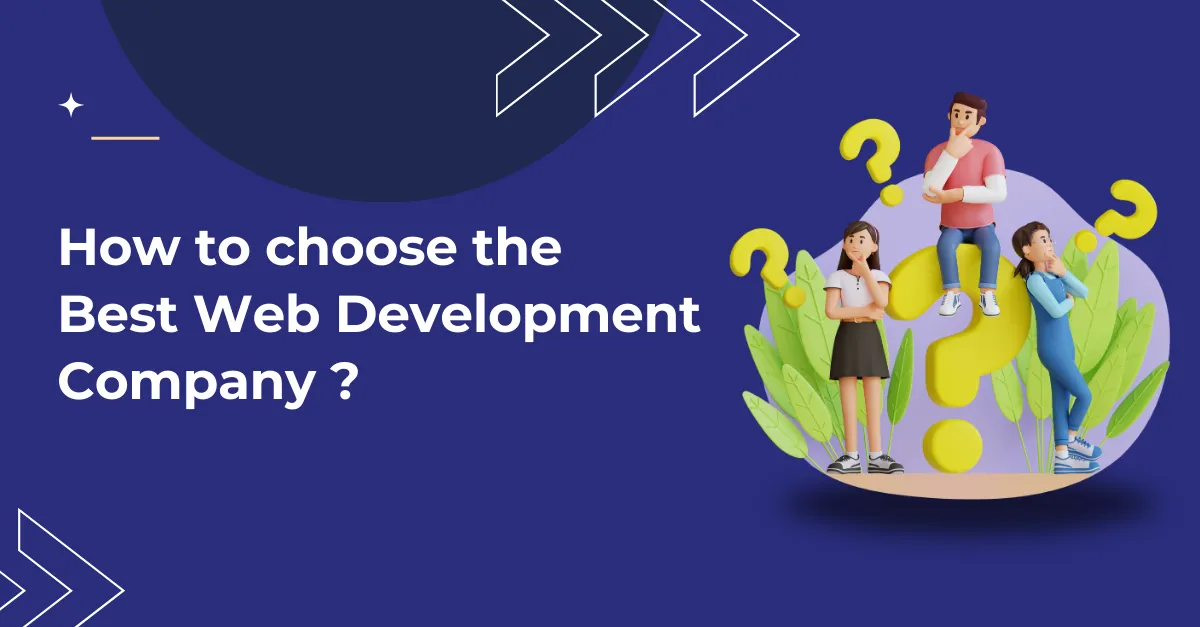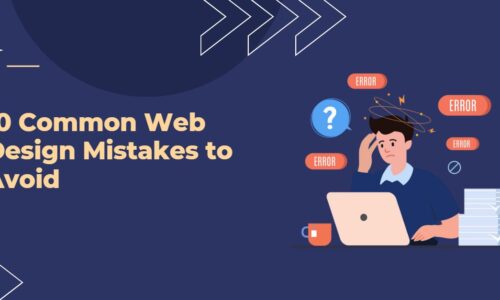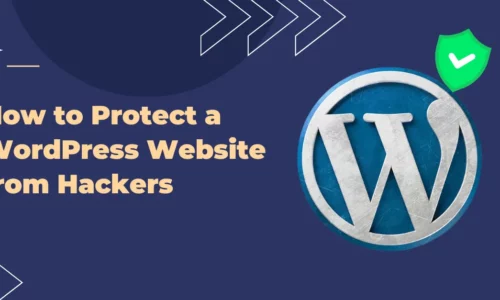How to Choose the Best Web Development Company?7 min read
- dhiraj
- 17/11/2023
- Web Designing
- 0 Comments

Choosing the right web development company to build your website is one of the most critical decisions for your business. Your website is often the first impression potential customers will have of your company, so you need it to be high-quality, visually appealing, easy to navigate, and optimized for your target audience. You must hire the best web development company to create this outstanding website; however, due to there being so many web development companies. So, it takes time to choose the best web development company. To simplify the job, we created the proper guide to help you find the best web development company according to your needs. So, let’s dive in.
Define Your Goals and Requirements
Before starting your search, clearly define what you want to achieve with your new website. Consider the following:
- What are your business objectives for the site? Do you want to sell products directly, provide information, allow customers to sign up for a service, etc?
- Who is your target audience? Understanding who will visit and use your site will inform the design, content, and features.
- What functionality and features do your business require? E-commerce capabilities? Lead generation forms? CRM integration? Define must-haves vs. nice-to-haves.
- What is your budget? Websites can range from a few thousand to lakhs of rupees. Outline your budget expectations.
- A clear vision of your goals and needs will help you evaluate whether a web development firm is the right fit.
Look for Industry Experience and Expertise
Seek out developers with proven expertise in your specific industry. For example, if you’re a retailer, select a firm well-versed in e-commerce sites. They will better understand your business challenges and customer expectations.
Review a company’s portfolio and client list for relevant examples of past work. Examine their specific services to ensure they provide the full range you need, like design, development, content, SEO, and more.
Ensure Strong Communication and Collaboration
Open communication is critical for project success. Evaluate a company’s communication style, even at initial inquiries, to get a feel for responsiveness. They should listen and understand your perspective while clearly explaining theirs.
Look for similar collaboration processes and company culture to work in sync. For example, if you prefer agile development with continuous feedback loops, ensure they work that way.
Dig into Technical Capabilities
Take a close look at the company’s technical skills and development approaches. Are they experts in the languages, frameworks, and platforms your project requires? Do they follow proven development best practices to meet timelines and budgets?
A qualified team should include roles like developers, QA testers, project managers, and designers. Having broader expertise in-house means faster and more cohesive end-to-end services.
Review Examples of Live Client Work
Examine a company’s portfolio for various industries, clients, and project types. This demonstrates well-rounded experience. Please pay attention to visual design and how they optimized sites for each target user.
Also, look at client testimonials and reviews on sites like Clutch. Positive feedback on quality work and service indicates they deliver consistently. Reach out to references for direct insights.
Clearly Understand Pricing and Project Scope
Get quotes from multiple firms and compare details like hourly rates, project fees, and what’s included. Avoid very high or very low bids. Ask specifically what additional costs may arise for extra tools, features, etc.
Have them walk through the entire development process and specifics at each stage. This helps align expectations on delivery, collaboration points, and who is responsible for what.
Consider Long-Term Support Options
Discuss how the company will support your site after launch – hosting, maintenance, updates, etc. You’ll likely need their help adding new content or features. Understand the costs for ongoing support.
Also, consider if they provide services to optimize SEO, integrate with marketing tools, or build custom applications later. Finding a long-term partner is ideal.
Align on Ownership and Confidentiality
Have clear contractual agreements on intellectual property and confidentiality, primarily if the developer works with competitors. You should own all assets and have complete control once the site launches.
Ensure employees sign NDAs to protect your business information. This gives you recourse if ideas or designs end up on another client site.
Look for Cultural Fit and Trusted Partnership
Beyond evaluating technical skills, consider personal rapport and values. This will be an essential business relationship for years, so ensure your work styles mesh well.
A vendor that invests time to understand your business shows commitment. Shared vision and trust will lead to a site that truly serves your needs.
Conduct a Trial Project First
If still undecided between top contenders, request a small trial project first. Provide specific criteria and evaluate their performance in a low-risk test run.
This gives you direct experience with their communication, timeliness, and capability to deliver based on requirements before committing fully.
Listen to Your Instincts
Technical expertise and proven processes are crucial, but your gut feeling also matters. Pay attention if something seems off with a potential partner, even if you can’t pinpoint it.
The right fit will have strong credentials but communicate openly, meet your priorities, and establish trust. Go with the company you are most confident will fulfill your vision.
Finding the best web development firm requires thoroughly evaluating options against your business goals. While choosing the right partner takes effort upfront, it pays off with a site that effectively serves your needs and users for the long haul. Follow these tips to make an intelligent decision.
In Conclusion
Frequently Asked Questions
What are the most important factors when choosing a web developer?
Focus on their industry experience, technical expertise, communication skills, design portfolio, client references, project process, and long-term support capabilities. Ensure they have proven success with projects like yours. Compare multiple bids and have in-depth discussions to evaluate which company best fits your goals and needs.
Where can I view examples of a company’s past work?
Web development firms often showcase projects on their websites. Look for a robust portfolio with varied examples across different industries, clients, and project types.
You can also find reviews and live site examples on directories like Clutch and GoodFirms. Analyze both design appeal and user experience. Examine case studies for details on their development approach.
What is the typical web development process?
While specifics vary across firms, the phases usually include:
- Requirements gathering: Document business goals, target users, content needs, and technical must-haves.
- Planning: Map out site architecture and pages; design sitemaps and wireframes.
- Design: Create visual layouts, branding elements, and style guides. Conduct user testing.
- Development: Build site backend functionality and integrate frontend visuals. Follow coding best practices.
- Testing: Thoroughly test all elements across browsers and devices. Fix bugs.
- Deployment: Migrate site to live servers and establish monitoring.
- Maintenance: Provide ongoing support, updates, and optimizations as needed.
Discuss the process upfront so you understand timelines and collaboration points.
How do I evaluate technical expertise?
Ask developers specific questions about their experience with relevant languages, frameworks, platforms, integrations, and applications you require. Gauge if they follow web standards and develop best practices.
Look for expertise across both visual design and backend engineering. Also, consider their approach to security, performance optimization, and scaling.
What ongoing support is typically provided post-launch?
Many companies offer web hosting services, SSL certificates, regular backups, and 24/7 monitoring. They can also provide maintenance like periodic updates, speed optimizations, debugging issues, and integrating new tools.
Ongoing content creation, SEO enhancements, and custom application development may be additional services to improve your site over time. Clarify costs for any post-launch support.
What are the signs of a poor web development firm?
Red flags include missing proposal details, vague timelines, lack of custom solutions, limited portfolio, inability to explain technical concepts, poor communication, and lack of interest in your business goals.
Steer clear of drastically high or low bids compared to the market average. Avoid firms that seem inflexible or need to follow organized development and project management processes.





